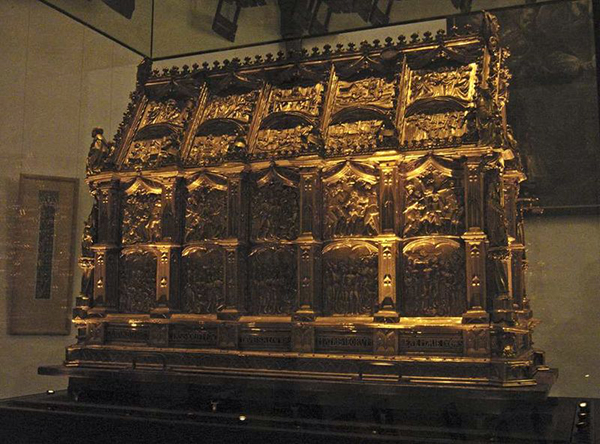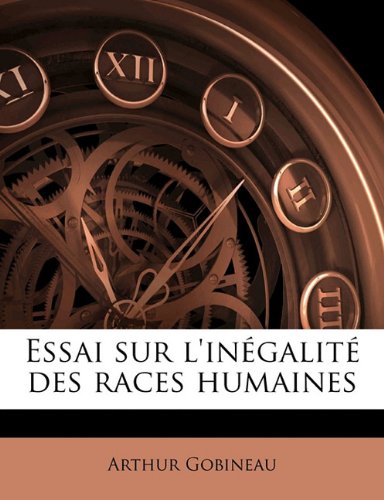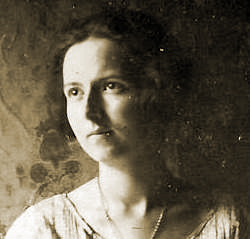Below, translated excerpts from the first volume of Karlheinz
Deschner’s Kriminalgeschichte des Christentums
(“Criminal History of Christianity”)
The Church and the Maccabees
Mattathias, the first rebellious leader of the Maccabees, was a priest and assassin whose name means “gift of Yahweh”, of the family of Asmon. Possessed by the “religious zeal” in the traditional biblical way, he killed an Israelite who by order of the royal commissioner intended to celebrate a sacrifice to idols.
Judas Maccabeus generalized the guerrilla struggle and purified the Temple, where he had found “the abomination of desolation” (Daniel 12, 11) imposed by Antiochus Epiphanes; he also nailed the head of the enemy general Nicanor on the gate of the citadel: an event that is still being celebrated today [by Jews] by means of a fixed holiday of the calendar.
Yohanan Hyrcanus (reigned 135-103) undertook great military campaigns, as they had not been known since the time of Solomon. Thus he Judaized by the force of arms the provinces of Idumaea and Galilee. But we should not believe that these were vulgar campaigns of expansion or ambition for power; they were “particularly religious wars called holy wars” (R. Meyer).
Hyrcanus also ravaged Samaria, a region that disappears completely from political history in the Christian era. Samaria, which had been the capital of the kingdom of Israel, enlarged with great splendour by King Amri, always rivalled Jerusalem. The Samaritans, a hybrid people in the middle of Palestine between Jew and idolater, were hated by the Jews more than any other.
Few of the Maccabees died of natural death: Judas Maccabeus, in the field; his brother Jonathan, killed; Simon, murdered; Hyrcanus II, grandson of John Hyrcanus I, executed by Herod, the ally of the Romans; Aristobulus II, poisoned; his son, executed, as well as his brother and the last Asmonean prince. Also the daughter of Alexander, Mariamne, married in the year 37 with Herod, died victim of palatial intrigues, like the mother, Alexandra and their children. “The reign of Herod was, to a great extent, a time of peace for Palestine” (Grundmann).
At the head of these conflicts, imperialist wars, civil wars and various atrocities shines the star, historical or not, of the seven “Maccabean brothers,” seven heroes of the “holy war.” It is thus that these Maccabees deserve not only to be “revered by all,” according to Gregory of Nazianzus, a doctor of the Church, but: “Those who praise them, and those who hear their praise, should better imitate their virtues and, spurred by this example, rise to the same feats. ”
It is a typical opinion. The most famous doctors of the Church rival among each other in praise of the (supposed) proto-martyrs of the insurrection, those “Maccabean brothers” who, according to St. Augustine, “before the Incarnation of Christ already fought for the Law of God to the point of giving their own lives,” or who “erected the magnificent banner of victory,” according to John Chrysostom.
They became symbols of the ecclesia militans and remembered in the three oldest martyrology lists. Once converted the synagogue of Antioch that housed the supposed sepulchres in a Christian church; once transferred their precious “relics” to Constantinople, then to the Roman church of San Pietro in Vincola and to the church of Maccabees in Cologne and celebrated in Germany and France, they are venerated: especially in the Rhine and Rhone valleys. (Below, what are believed to be the Maccabees’ relics.)
 The existence of Christian saints before Jesus Christ can only seem absurd to anyone who does not know the Catholic mentality, the sceptical in earnest who insists on taking logic as the sole foundation of any reasoning.
The existence of Christian saints before Jesus Christ can only seem absurd to anyone who does not know the Catholic mentality, the sceptical in earnest who insists on taking logic as the sole foundation of any reasoning.
Pagan saints… and holy wars. In the two great insurrections of the first and second centuries, the practice of “holy war” returned with all its savagery and cruelty, with its apocalyptic follies. The “battle of the last days” against the idolatrous Rome searched for, no less, “the Messianic Kingdom of God.”








